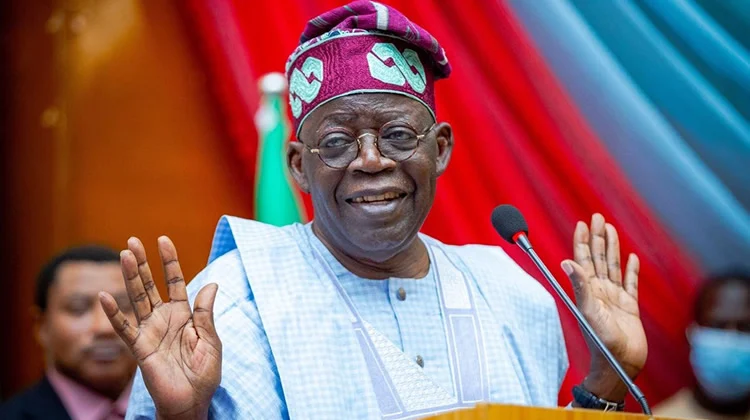
President Bola Ahmed Tinubu has been advised to halt the plan of his government to distribute N8,000 to 12 million poor Nigerians in six months.
The Nigerian leader was admonished to, instead, empower at least 600,000 entrepreneurs with N1,000,000 each, so they could engage in petty businesses that will directly or indirectly employ at least four other Nigerians.
“The money should be paid back over a period of 10 years at a 2 or 5 per cent maximum rate and, if possible, at no interest since N576bn proposed by Federal Government is a free gift anyway,” says financial expert, Gbenga Adeoye, during a recent interview with journalists.
This, according to Adeoye, will create 3 million direct and indirect employment across the country.
OsunDailyNG reports that President Tinubu, on Thursday, requested N500 billion from the National Assembly, supposedly to be distributed to poor Nigerians as palliatives to cushion the effects of the fuel subsidy removal.
In the letter, Tinubu explained that his government would transfer N8,000 a month to 12 million poor and low-income households, with a multiplying effect on about 60 million individuals.
The latest development, however, has generated mixed reactions among Nigerians at home and abroad.
Speaking, however, during an interview on Friday, Adeoye said Tinubu’s government would not be able to cushion the effect of subsidy removal through the planned distribution of N8,000.
The financial expert acknowledged the fact that Tinubu was prepared for the presidency job due to the actions he took immediately after he assumed office. He, however, argued that he could not successfully go on with the plan distribution of palliative for six months.
Explaining why the cash palliative should be avoided, the Chartered Accountant said that N8,000 to 12 million Nigerians would amount to N96 billion a month and N576 billion in six months.
“Cash palliative does not befit a country that has not reached optimal production level, it is good in a country that has attained optimal production level, but the people are restricted from going out to work. An example of such is the United States of America, where cash was distributed during COVID-19 Restrictions because people could not go out to perform their economic activities,” Adeoye told Daily Post.
Another Alternative to Plan Palliative
Giving another alternative to the plan palliative by Tinubu’s administration, the financial expert suggested that the Federal Government could acquire 200 buses per senatorial district at N30m per bus, stressing that N666 billion would be spent on acquiring 22,200 buses.
“This will reduce the cost of transportation if handed over to relevant stakeholders to manage,” Adeoye noted.
He, however, said the federal government must ensure regular maintenance and run it as a pure business but regulate the rate based on locations.
“Make monthly tickets available. USE card over time like in OYSTER Card in the UK.
“Ensure there are savings from the income generated from the buses to be able to replace them after five years. Let no politician use the bus for free.
“All Nigerians will benefit from this as most people will no longer have to worry about the high cost of petrol,” he stated.
Expressing further concerns about the planned N8,000 palliative, he asked: “How do we determine the poor Nigerians? How do we ensure the spread across the country? What will N8,000 do monthly?”
The UK Arbitrator said, “In my considered opinion, that move will not solve the poverty problem and hardship arising from fuel Subsidy removal.
”To give N8,000 per month is to give N266.67 per day. This will not produce the desired result as it means giving less than N90 per meal if it is assumed that the so-called poor will eat three times daily.
“The worst aspect of cash palliative is that people return to their level at the end of the programme, and that will cause more havoc after 6 months and can lead to unrest.
“Lastly I repeat, Mr President, please do not give out cash palliative of N576b. The amount is too much for such and the two alternatives enumerated above will have better impact than N266.67 per day to 12 million Nigerians.”


